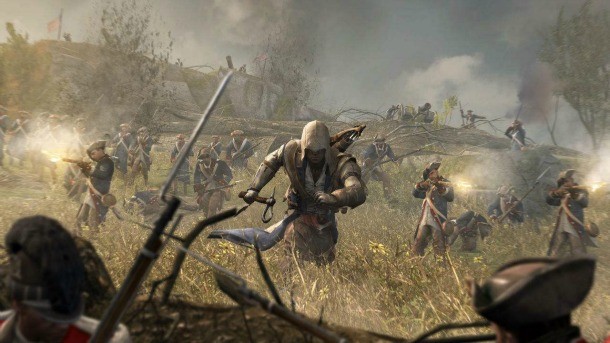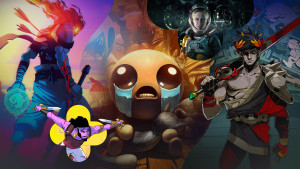Please support Game Informer. Print magazine subscriptions are less than $2 per issue
Opinion – How To Fix Yearly Sequel Fatigue

A new series debuts. It's awesome! Sequel twelve months later. The developer took the criticism to heart; it's better than the first. Sequel twelve months later. The formula is starting to grow a little tired, but I still love this series. Sequel twelve months later...sequel twelve months later. Now I'm burned out, and the Internet is making fun of the series. Is this healthy for the industry?
When you look at the industry through a lens of new, annual revenue sources, it's a little easier to see why a big publisher would be eager to release a new entry in its biggest franchise every year. However, I think yearly releases only work for a short while. In the long term it's hard to keep a series fresh when you're pumping out a new entry every twelve months (unless your game has the name of a major sports league in the title). A cash cow will get milked dry if it's not given enough rest. I've watched some of my favorite series – such as Tony Hawk, Guitar Hero, Tomb Raider, and Splinter Cell – wither in popularity after several years of annual releases. I've also started to grow tired of franchises like Assassin's Creed and Call of Duty, which are running the same annual release gauntlet. How can we break this cycle?
I've seen hundreds of editorials that argue the pitfalls of a yearly release schedule; this doesn't need to be another one. Despite all of the Internet clamoring for the end of yearly sequels, publishers like Activision and Ubisoft probably won't slow down the releases of its best-selling franchises as long as they're making money. Instead, let me offer a suggestion that might help solve yearly release fatigue: Pull a Blood Dragon.
Far Cry 3 released late in the year, but it proved to be one of the best games of 2012. This first-person shooter dropped players into a tropical island full of dangers and rewarding quests. Players could gun down waves of modern-day pirates throughout the game's polished story missions or spend time hunting down wild animals and crafting new gear before tackling a diverse set of side quests. Ubisoft could have developed a DLC package the took players to a new island with more wild animals, a new set of antagonists, and a few new weapons. That would have been fine; it might even have been good; DLC like that works well for many games. But that's not what Ubisoft did, because the DLC package for Far Cry 3 was incredible.
Far Cry 3: Blood Dragon was a shotgun blast of '80s nostalgia. It was a neon-lit cyberpunk dream that had players laser blasting cybernetic warriors in an alternate, dystopian, post-apocalyptic future. Blood Dragon was exciting because it was hilarious, fun, and wholly original, and if you haven't played any of the Far Cry games yet, you should skip the entire series and jump right into Blood Dragon.
I understand that Far Cry isn't a franchise that receives yearly releases, but I think Blood Dragon is a great example of the kind of creative twist we should be seeing in annual releases. Assassin's Creed's started to explore this kind of thinking with The Tyranny of King Washington DLC, but why does this kind of gameplay have to be relegated to DLC? This level of creativity might be exactly what yearly franchises need to stay fresh.
Imagine a Call of Duty that teleports you through time as you gun down an entire Roman legion on the back of a dinosaur. Imagine an Assassin's Creed game set on a futuristic martian landscape where you're fending off an invading fleet of little green aliens. What if you were fighting vampires in Call of Duty? What if your Assassin was a ninja cyborg? One year the publisher could release a traditional sequel, and the next year that same franchise could explore a less traditional topic. This kind of Twilight Zone approach to design might even improve sales; die hard fans would buy the series anyway, and casual fans who were growing tired of the series might be drawn back by the novel setting.
I honestly don't expect any publisher will try this experiment, but I wish they would. At the very least, I hope that publishers recognize the strain they put on their fans with yearly releases. As long as our industry's biggest franchises are making money, publishers probably won't take our advice, but I hope that they can start being a little more creative with the games they churn out every year.










